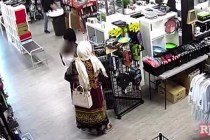Boy, 9, and his doctor spread awareness about juvenile arthritis
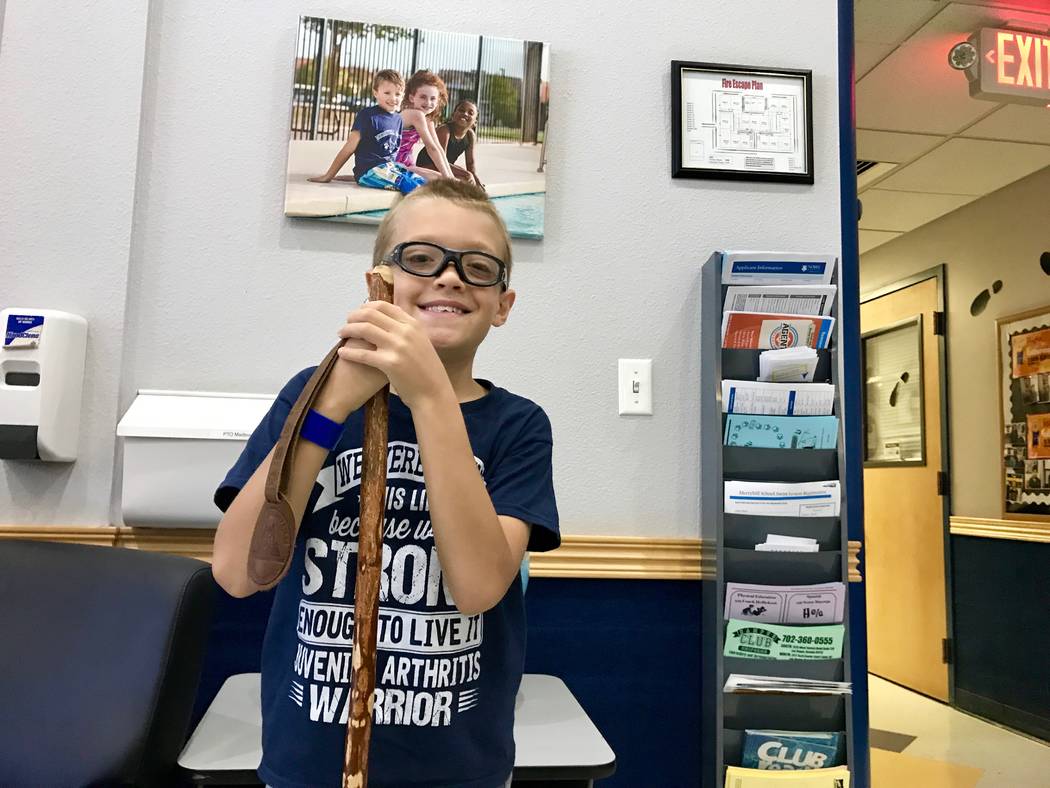
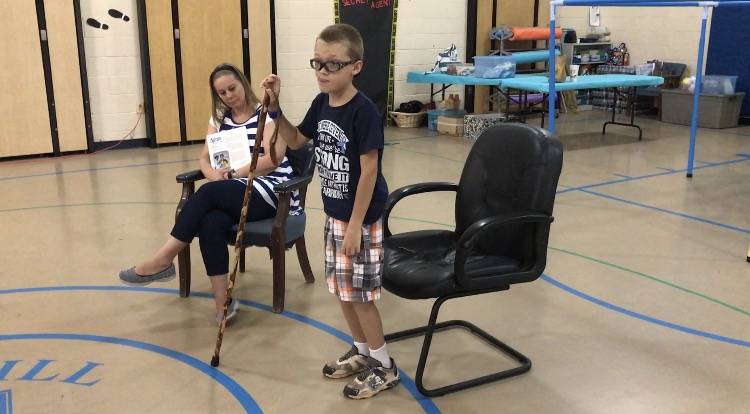

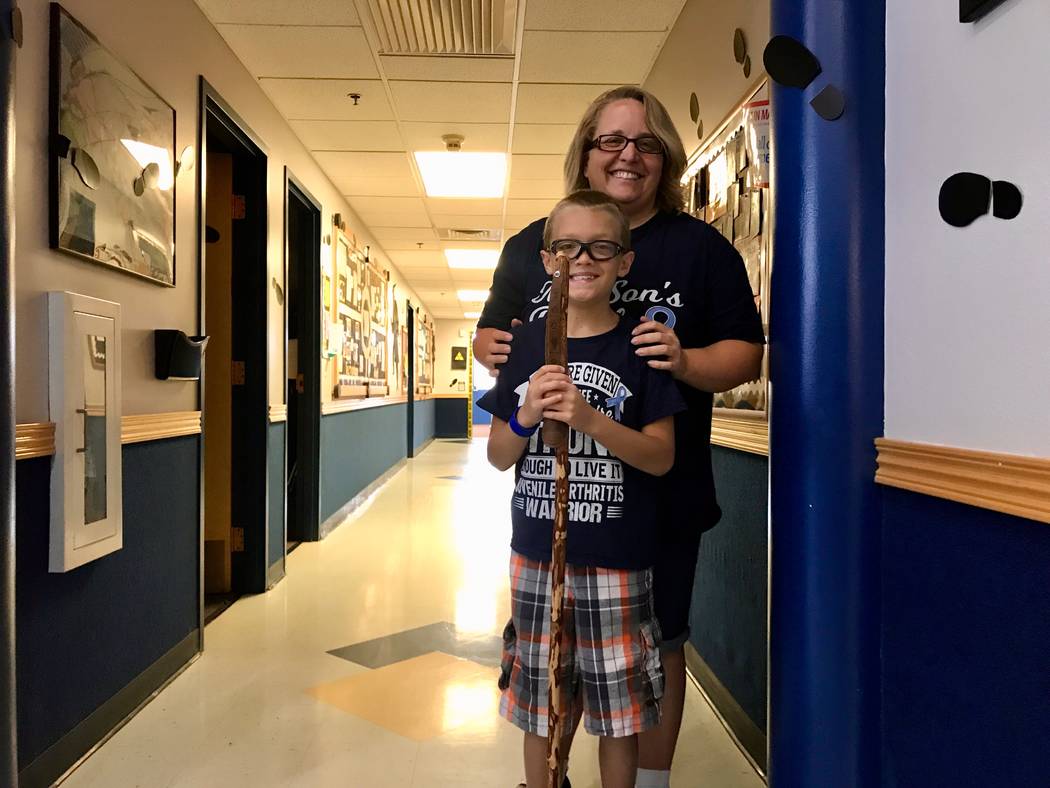
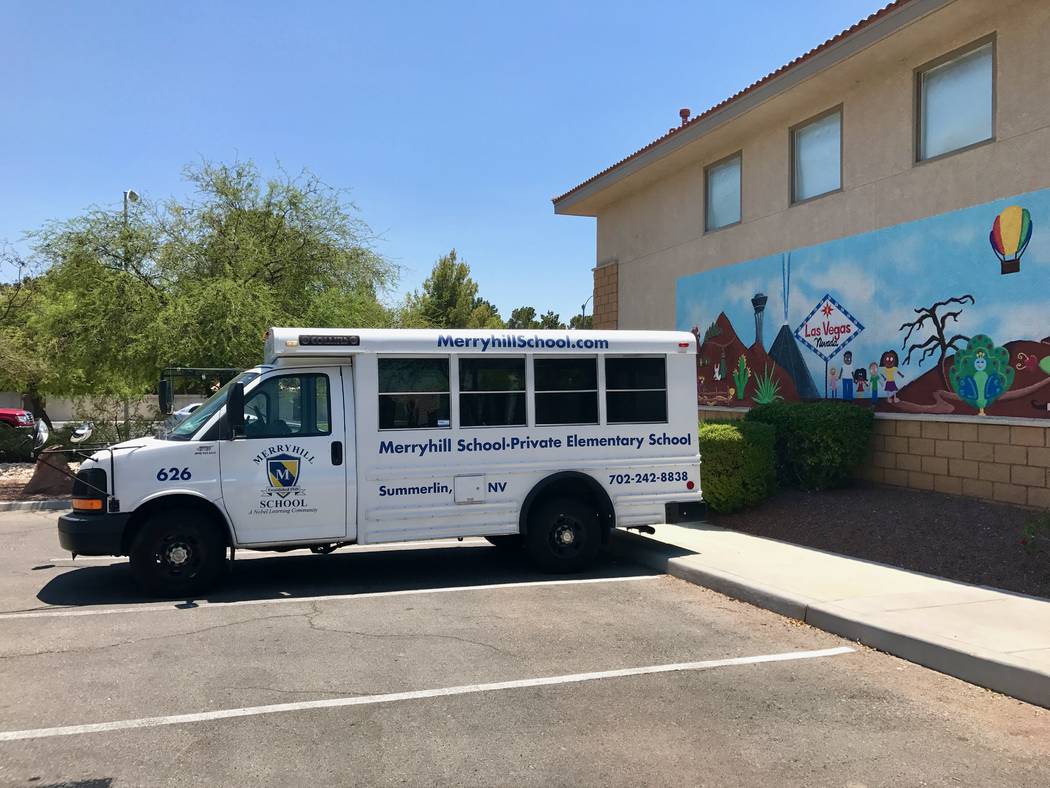

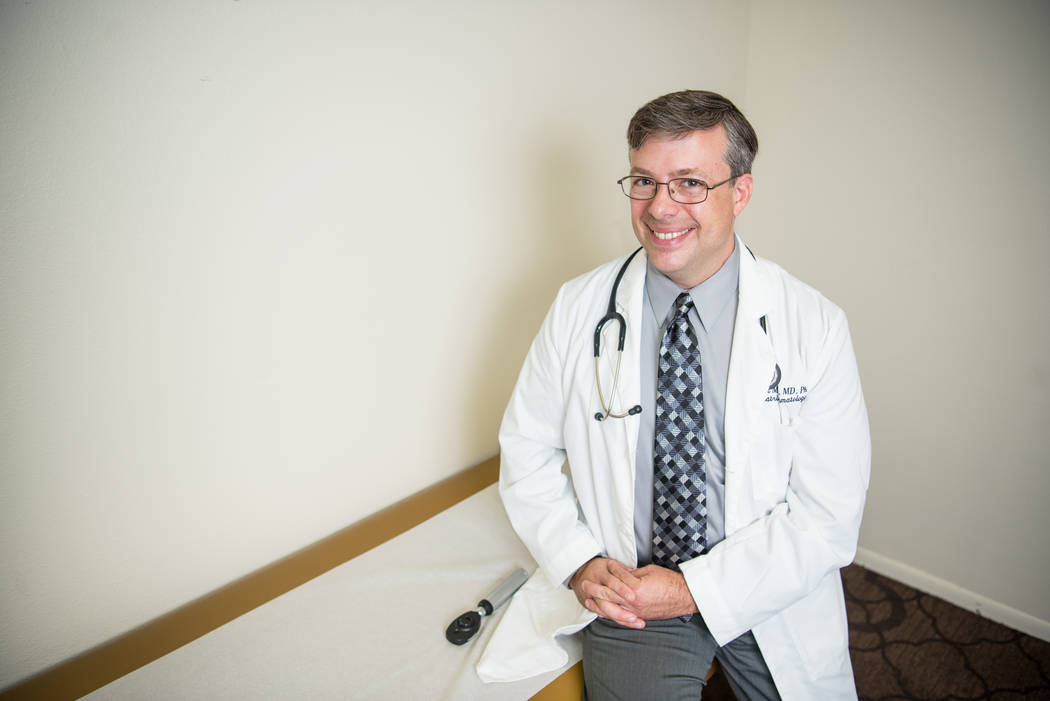

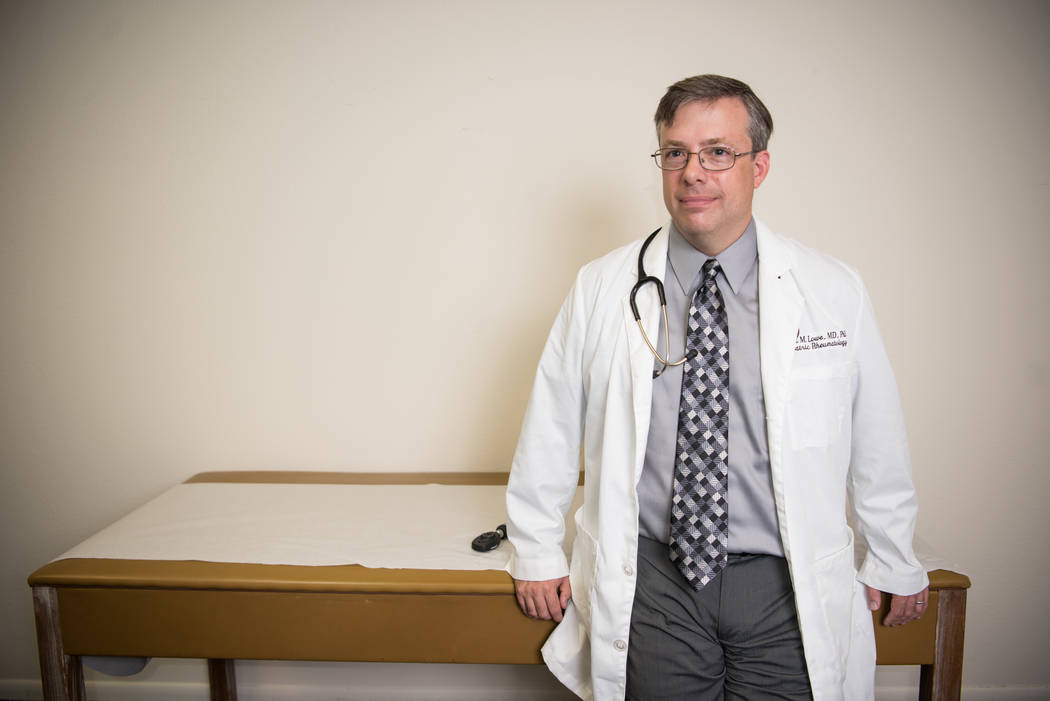

It started in his knees.
Kasper Roden-Riisnaes, 9, began complaining in March that his legs and knees hurt. They hurt so much that he had trouble standing up and walking. While his mother, Kim Roden, initially thought it was just growing pains, she knew something was wrong when her son could barely get out of bed for school.
“He was literally walking like a little old man,” Roden said. “So that day I called the doctor.”
It took blood tests, doctor appointments and several weeks, but Kaspar finally received his diagnosis in early June: He had juvenile idiopathic arthritis.
Juvenile arthritis affects nearly 300,000 children in the U.S., according to the National Institute of Arthritis and Musculoskeletal Conditions and Skin Diseases. But despite its prevalence, Las Vegas did not have a full-time pediatric rheumatologist until late last year. With the help of Dr. Robert Lowe, Kaspar’s family is working to increase awareness about the disease.
In August, Lowe came to the Children’s Specialty Center of Nevada, after working at the University of Alabama at Birmingham. He was a physician-scientist at Children’s of Alabama, where he saw about five patients a week. He left the specialty center in December to start his own clinic, Kid’s Arthritis Care — Juvenile Arthritis and Rheumatology Care and Research Center in the southwest valley. The clinic opened in late June.
Juvenile arthritis refers to the many autoimmune and inflammatory conditions and rheumatic diseases that develop in children, including idiopathic arthritis, Kawasaki disease, mixed connective tissue disease, fibromyalgia, juvenile scleroderma and juvenile dermatomyositis, according to the Arthritis Foundation.
Prior to Lowe’s arrival in Las Vegas, children with arthritis would have had to wait for a juvenile rheumatologist to travel to Nevada, which sometimes resulted in wait times of up to four months, according to Roden and Lowe.
“I started looking at other options in Salt Lake City, Phoenix,” Roden said. “I was trying to find anywhere that would take us.”
She didn’t want to wait months to see a doctor when Kaspar was constantly in pain.
Roden didn’t know about Lowe’s arrival in Las Vegas until a coworker, Marisol Louis-Jacques, whose daughter also has juvenile arthritis, told her about him.
There are about 150 juvenile rheumatologists in the country, Lowe said, and a majority of them are at larger medical centers or universities.
Between leaving the Children’s Specialty Center and opening Kid’s Arthritis Care, Lowe made himself available to patients.
“I put my name out there so parents would find me and could arrange for me to see them in their pediatrician’s office,” Lowe said. He has had about 40 patients so far, and said he’ll likely see more come his way when he’s credentialed with more insurance providers.
He got a lot of “urgent cases for kids that weren’t doing well,” including Kaspar.
“That’s the problem with rheumatoid arthritis: It’s not one that you can suffer through,” Lowe said. “If it’s juvenile arthritis, you could be losing your joints and doing permanent damage.”
While monthslong wait might not destory a child’s joints, it could inhibit growth and cause unnecessary discomfort, Lowe said.
Kaspar coping
Kaspar is still learning to understand his diagnosis. He has a “textbook case,” his mom said. There’s no cure for his disease, but he should start treatment by the end of July. Treatment could involve low-dosage injections of methotrexate, a common chemotherapy agent and immune system suppressant.
Then, Roden said, they hope to see him in remission within six months to a year. Until then, he takes naprosyn for the pain and swelling.
At a recent fundraiser for the Juvenile Arthritis Association that Roden organized at Merryhill Elementary School, Kaspar sat in front of a group of kids his age. At his side was a wooden walking stick that his family had bought him on a recent trip to Lake Tahoe.
He didn’t want a cane, he said, because he thought his friends would make fun of him.
“I just kind of have to walk differently,” Kaspar said to the group of students. “I can’t do the things that I want to do. I can’t walk up the pool ladder, and I can’t really walk as easily.”
It’s also very hard to ride a bike, Kaspar said, because he can’t straighten his legs out. And at school assemblies, he can’t sit “crisscross applesauce” on the floor because it hurts to bend his legs.
Between two Merryhill campuses in Summerlin and on Durango Drive, students raised a combined $1,285.
About $2 million in private funding a year goes to the research of pediatric rheumatic diseases, according to the Juvenile Arthritis Association’s website. By comparison, juvenile diabetes receives nearly $200 million a year. Leukemia receives about $270 million.
“People think that only old people can get arthritis, and that’s not true,” Roden said.
Contact Madelyn Reese at mreese@viewnews.com or 702-383-0497. Follow @MadelynGReese on Twitter.
Getting treatment
While Dr. Robert Lowe is the first full-time pediatric rheumatologist in the valley, the Children’s Specialty Center of Nevada has been hosting visiting doctors in the specialty for years.
Drs. Diane Brown and Katherine Marzan, pediatric rheumatologists from Children’s Hospital of Los Angeles, make monthly visits to Las Vegas to see patients.
Children’s Specialty Center’s charity program helps families without medical insurance or unable to pay for treatment by providing funding based on a sliding income scale. No patients are turned away for financial reasons.
Lowe is in the process of becoming credentialed with all medical insurance companies.
“I don’t think it’s fair to tell parents that if you don’t have this insurance you have to go out of state,” Lowe said.
Children’s Specialty Center of Nevada
Where: 3121 S. Maryland Parkway, Suite 300
Phone: 702-732-0232
Kid’s Arthritis Care
Where: 3017 W. Charleston Blvd., Suite 50
Phone: 702-686-9239
Symptoms
Each pediatric rheumatic disease has its own signs and symptoms, according to arthritis.org. Some common things to look for include: pain; joint swelling; stiffness; redness and warmth; fever; and rash.










